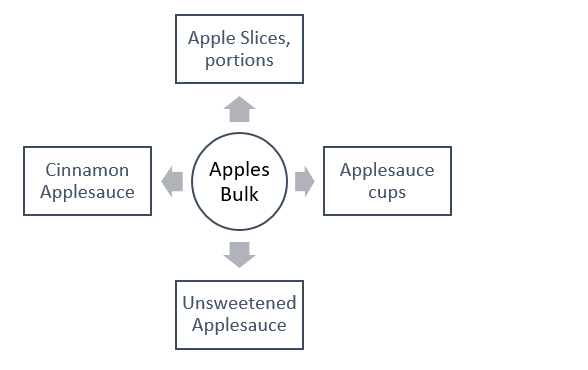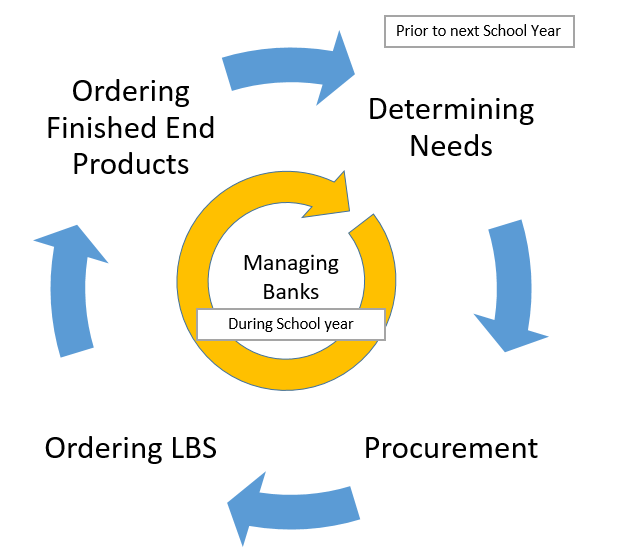This page is meant to assist agencies with diverting USDA Foods for further processing. This often results in the agency being able to offer fnished products that it wouldn't have been able to afford or prepare otherwise. Processing can even be local!
Program Key Points:
- Contract with commercial food processors to convert raw bulk USDA Foods
- Delivery minimums and Value Pass Through depend on processors
- ODE service fee $0.15 per lb
What is Diversion/Processing?

The Diversion/Processing option allows recipient agencies to divert bulk USDA Foods material to processors for further processing. Processors use that bulk material as an ingredient in the production of a finished end-product. This lowers the cost of the finished end-product and represents a pass-though value to the agency because USDA bulk products are ordered at a lower cost. As a result, agencies are able to offer a variety of convenient, ready-to-use finished end-products to meet the needs of a diversity of students.
Take a look at the
Processing Reference Summary SY23-24 for examples of what USDA Foods bulk items are used to produce a variety of end-products.
Deciding to Process
Weigh the benefits versus drawbacks and consider whether or not processing is a good option for your agency. Having a clear idea of the effort it takes will help you process succesfully.
What do you want to process? Consult with processors about your needs and get ideas from what other RAs do. View our
Processor and Broker contact list.
How much entitlement do you have towards processing? check your entitlement in
WBSCM login
Are you ready to follow the procurement timing and commit the time throughout the year? maybe it is easier for you to use our
ODE Processing Agreements.
Continue reading to better understand the processing cycles and timeline.
Cycles of Processing

Prior to the next school year, the processing cycle begins with planning and
determining needs based on your menus. Then comes the procurement time which involves writing specifications, obtaining quotes or use ODE price agreements and awarding contracts. Once you contracted with a processor the next phase is
ordering lbs in WBSCM to get bulk USDA material and divert these pounds to your processor. Once you requested USDA foods for the next year, the last phase is
ordering finished end-products.
As you are planning for the next year however, you must also manage the current year and
manage banks.
Recommended Processing Timeline
 This is our recommended processing timeline. Successful processing involves a year-long effort. While the most important is to know when to request your USDA bulk material and
not miss the spring deadline, processing is more than ordering bulk food in WBSCM. Processing timeline includes managing the current year and also preparing for the next year. It follows a processing cycle that begins with planning, then
procurement, then
ordering pounds in WBSCM and last,
ordering finished end-products. Processing means on ongoing process of managing banks while preparing for next year.
This is our recommended processing timeline. Successful processing involves a year-long effort. While the most important is to know when to request your USDA bulk material and
not miss the spring deadline, processing is more than ordering bulk food in WBSCM. Processing timeline includes managing the current year and also preparing for the next year. It follows a processing cycle that begins with planning, then
procurement, then
ordering pounds in WBSCM and last,
ordering finished end-products. Processing means on ongoing process of managing banks while preparing for next year.